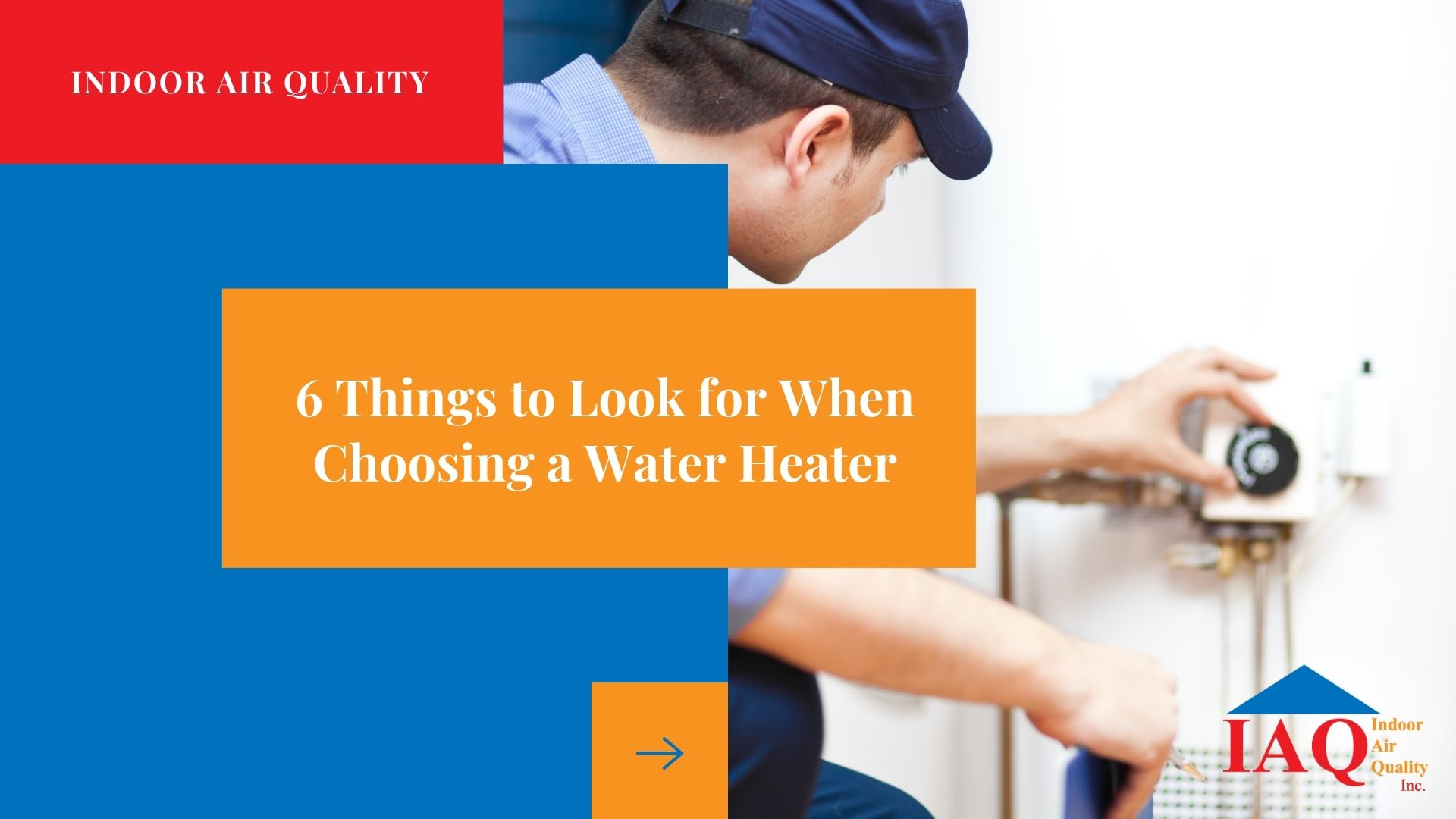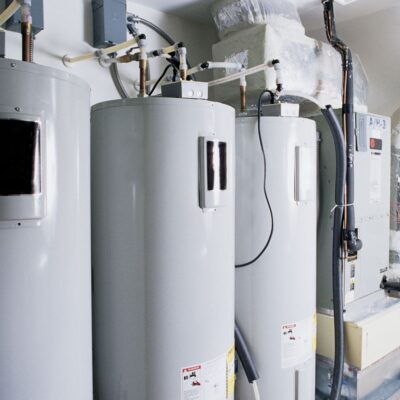Blog
6 Things to Look for When Choosing a Water Heater
When selecting a water heater for your home, naturally, you want one that provides the amount of hot water you need when you need it for the lowest possible cost. Choosing that perfect unit may be more challenging than it sounds. Several factors need to be considered, including the type of water heater, size, capacity, fuel source, fuel cost, and energy efficiency.
Types of Water Heaters
Storage Tank Water Heaters
The most common type, storage tank water heaters range in capacity from 20 to 80 gallons. The tank fills with cold water, which is then heated by either electricity or gas and maintained at a set temperature until needed.
Storage tank water heaters are the least expensive and require little maintenance. However, they use the most energy to operate as the water must be continually reheated to maintain the set temperature.
Tankless Water Heaters
As you might guess from the name, tankless water heaters prepare hot water as needed rather than storing heated water in a tank. They are also called “instantaneous” or “on-demand” water heaters. When hot water is turned on (through a faucet, dishwasher, or clothes washer), cold water flows into the unit, then heated to a set temperature and released into the pipes.
Tankless heaters come in various sizes. They are more energy efficient than storage types and never run out of hot water. However, they’re more expensive than storage types, and installation can be more difficult. Additionally, if you have a large home or family, you may need more than one tankless heater.
Hybrid Heat Pump Water Heaters
Hybrid heat pump water heaters use the warmth from the air to heat the water inside a storage tank. They also have a supplemental electric heating system for periods of high demand.
Because they use air that’s already warm, hybrid heat pumps are very energy efficient – as much as three times more efficient than the storage type, saving the average household as much as $300/year in energy costs. Hybrid heat pump water heaters installed by Indoor Air Quality, Inc. all have an electric heating mode to handle periods when temperatures dip lower than 40 degrees.
Water Heater Size
The space available in your home for installing the water heater can impact the type and size you can install. For example, if you want a storage-tank water heater but don’t have enough space, you may need to choose a “lowboy” tank heater, which is shorter and wider, or a tankless water heater.
In 2015 the federal government mandated new guidelines for water heater energy efficiency, including the amount of tank insulation. As a result, some tank-type heaters got wider. If you’re considering replacing a 50-gallon, pre-2015 tank with a current model, measure your space first. It may no longer fit.
Capacity
You can calculate the water heater capacity you need by visiting the U.S. Department of Energy’s webpage on sizing a new water heater. Your appliance dealer can also help you make this calculation.
The water heater capacity you need typically depends on the hot water your household uses at peak times, like first thing in the morning. For storage-tank water heaters, that’s called the unit’s “first-hour rating” (FHR). For tankless heaters, it’s called the unit’s “flow rate,” expressed in gallons per minute (GPM).
For example, a family that takes four showers, fixes breakfast, and then turns on the dishwasher each morning as they leave for the day will need a substantially larger capacity than a couple that takes two showers in the morning and hits a drive-through for breakfast on the way to work.
Fuel Source
Water heater fuel types include natural gas, electricity, fuel oil, propane, and geothermal energy. Which one you have in your home depends on a combination of what’s available in your area, how your home is equipped, and personal preference.
You will want to balance the annual operating cost against the initial purchase and installation. “Energy Star” appliances are certified to be very energy efficient and comparatively less costly to operate. Many Energy Star water heaters also qualify for state and local tax rebates.
Fuel Cost
Water heater energy efficiency and yearly operating cost depend on the heater type, capacity, and fuel type. Whether you choose a tank-type, tankless, or hybrid heat pump, you want to focus on choosing one that is cost and energy-efficient. Learn more in this resource from the U.S. Department of Energy.
Energy Efficiency
All water heaters consume a lot of energy, but some are more energy-efficient than others. Each unit comes with an Energy Factor (EF) rating that helps you compare how much it will cost it year to operate it. The higher the EF rating, the more energy-efficient the unit.
Count on Our Experience
Indoor Air Quality, Inc. has served Highlands Ranch and the Denver Metro Area for more than 20 years. Check out our customer testimonials, contact us, or use our online contact form for more information and a free quote.






